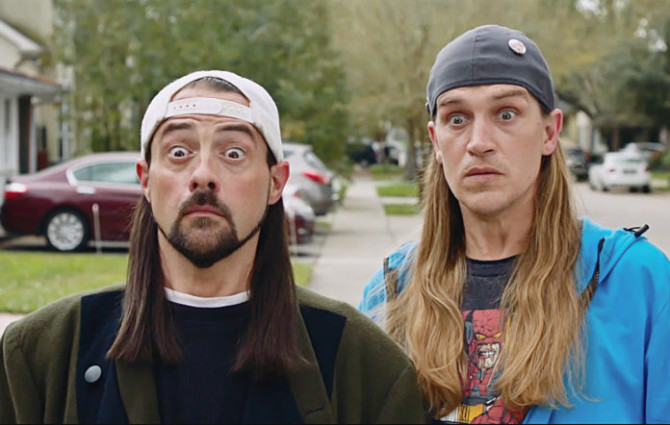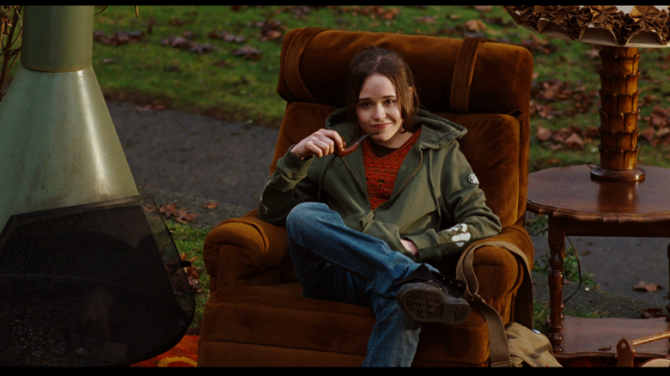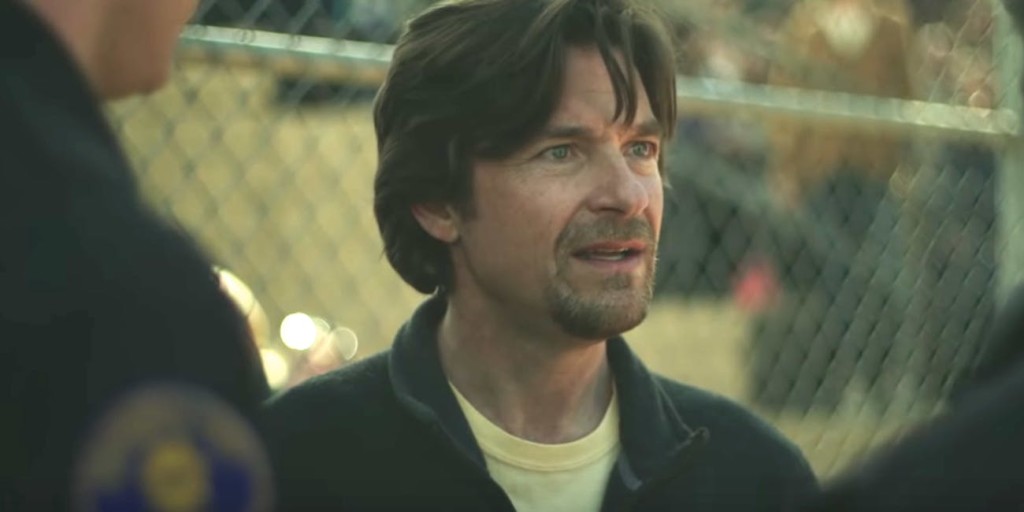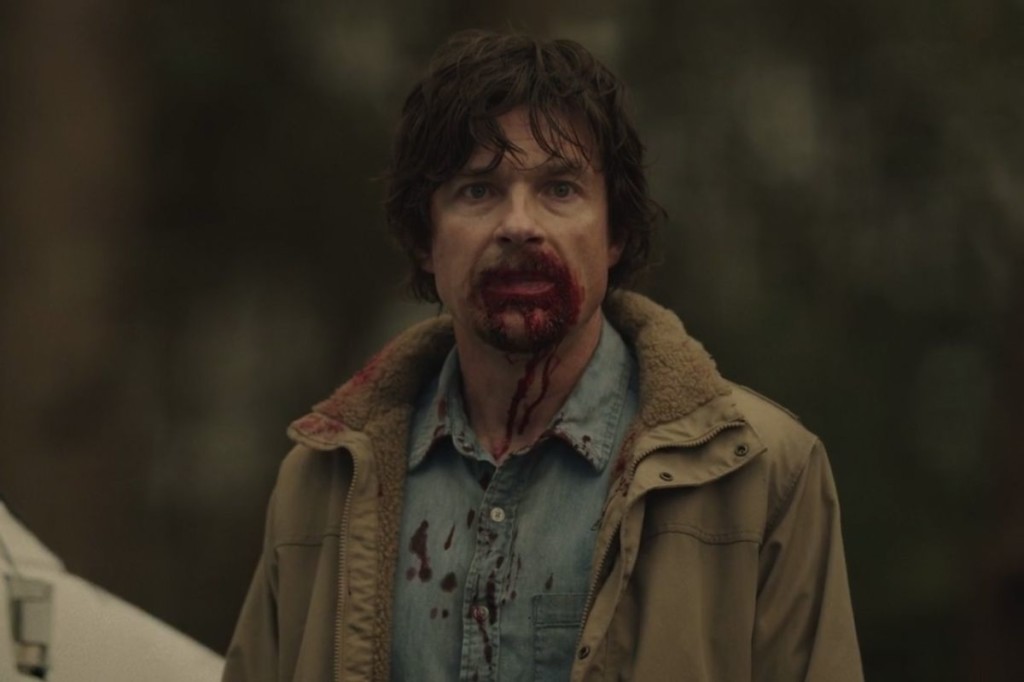I have a question for you.
Does Sundance matter anymore?
It used to be the number one hotspot to find the next breakout hit. Little Miss Sunshine, Reservoir Dogs, Memento, The Usual Suspects.
But what’s come out of Sundance recently?
Late Night. Blinded by the Light. The Report. And let’s not forget that 2017 Sundance darling that lit the box office on fire – Beach Rats.
Okay, to be fair, there are still some success stories. Eighth Grade. The Big Sick. Call Me By Your Name. But Sundance movies used to make money! Little Miss Sunshine made 100 million bucks at the box office. Where are the money-makers these days? It feels like Sundance has become more of a place to feed streamer content.
Back in the day, film festivals were the only way to get non-traditional movies a) seen and b) distributed. But the internet’s been steadily eating away at that model for years and I think we’ve finally reached a point where festivals no longer make sense. The one argument they still had over the internet was, “Do you want your movie to be seen on a big screen or on someone’s phone?” But outside of Christopher Nolan, people aren’t picky about how they watch their media anymore.
I suppose it’s still a place to build buzz for projects. You have a movie that does well at Sundance and that translates into a studio getting behind you and putting together a legit release with an actual marketing budget behind it. But how did that go for a movie like “The Farewell?” Yes, it was a critical darling. But nobody saw it. Why? Because there were a bunch of people looking really sad on a poster for one (nothing screams “I HAVE TO SEE THAT!” better than a bunch of depressed faces). But also, Sundance no longer carries the same level of cache. There aren’t enough successful movies coming out of there to generate interest when they say they’ve found a new one. And The Farewell continues that streak.
The point is, I’m not sure film festivals work as a model anymore. They were perfect for 1997 when it was the only way to break out from obscurity. But nowadays, it seems like the better option is to make a great short film, put it on the internet, get a lot of views, and find someone to bankroll the feature (a la Lights Out). I also believe it’s a matter of 3-4 years before a Netflix or Amazon creates a direct distribution model for films the same way they have for self-publishing novels. “But how will anyone know about them, Carson??” The best movies will rise to the top via rankings and word of mouth. If I had the resources, I would put that system together in a second.
While I was ruminating on all this, what should appear on my iTunes main page but the latest “Jay and Silent Bob” movie. Before I knew what was happening, Carson circa 20 years ago rented the flick. Great, now I had to watch it.
I decided to enter this viewing experience with a simple directive: LAUGH ONE TIME. That’s it. That’s all I was asking of this 90 minute movie – to make me laugh one single time. Did it succeed? I’ll share that answer with you in a second but first let’s talk about Smith.
Kevin Smith is the single luckiest person who’s ever made it in Hollywood. And I say that sans hyperbole. I truly believe he’s at the top of the list.
This is a man who maxed out his credit cards to make a movie, in black and white mind you, that he then used the last of his money for to submit to the Independent Feature Film Marketplace, got the world’s worst screening time (11 am) and nobody showed up except for one guy named Bob Hawk who had a little pull in the indie business. Hawk literally told Smith that the only reason he showed up was because he saw the publicity card for the movie and it looked like the saddest thing he’d ever seen. He showed up because he felt bad for the film. It just so happened that his sense of humor lined up with Smith’s. He began telling everyone it was great, and this was back when you could tell people through backchannels that something was great, build a buzz, and the movie would succeed regardless of whether it was good or not. It was the buzz that propelled it, not the quality of the film.
It is safe to say that had Hawk not gone to that Clerks screening, nobody would’ve ever heard of Smith.
Mind you, I’m not saying Clerks wasn’t good. There are obviously people who love it. But is it as good as it was made out to be? If you look at the rest of Smith’s contribution to film, does it support the belief back then that he was a talented filmmaker?
I throw in Jay and Silent Bob Reboot and, like I said, I only want to laugh once. The plot isn’t as bad as I expected. Jay and Silent Bob get arrested for growing weed and during their court case, accidentally sign a document giving up the rights to their names, which allows Kevin Smith, as in the actual director, to use their likeness to make a Jay and Silent Bob reboot movie so they need to get to California to stop him. Actually, what am I talking about? That sounds awful. Am I deranged?
Which would explain why I was not able to achieve my goal. Jay and Silent Bob Reboot does not have a single solitary laugh in it. Not one.
I’m sitting there thinking to myself, how can this be? Just the sheer number of jokes implies that one of them has to hit. Even a stopped clock tells the right time twice a day. But nope. There isn’t even a funny dialogue line. And that’s arguably Smith’s only strength, is his dialogue.
I could’ve disposed of the film’s memory right then and there but my screenwriting analysis side wouldn’t let me. I had to understand why the movie was so unfunny. Comedy is the most subjective genre there is. But this was objectively unfunny. Why was that?
The first thing that popped out at me were the letters “S” and “U.” Longtime Scriptshadow readers know what I’m talking about. G = goal. S = stakes. U = urgency. Jay and Silent Bob had the “G.” The goal is to get to Hollywood to stop the movie from happening.
But what are the stakes? What happens if they don’t stop it? The movie gets made and… then what? They don’t have the rights to their own names? Does it really matter? If it does, they don’t do a good job conveying that to us. The value of high stakes is that they make your characters’ actions feel important. This trickles down to every single scene because if our characters encounter an obstacle, we’re a lot more invested in them overcoming that obstacle if the ultimate goal feels important.
Stakes work hand in hand with URGENCY. If you can create an important situation and you can then give your heroes less time than they need to accomplish it, your script is going to feel tense, and that’s something Jay and Silent Bob Reboot lacked.
Jay and Silent Bob has what I call “FALSE URGENCY.” It’s urgency that’s on the page (“We only have 3 days to get to Hollywood!”) but it never truly feels like they’re in a hurry. This is something I try to remind screenwriters. You can’t pay lip service to the formula. It has to be authentic. In The Hangover, you really felt the characters’ need to find the groom by the end of the day so they could get him to his wedding on time.
Or look at one of the biggest comedies from last year – Good Boys – to see how to get the formula right. In that film, the boys lose their dad’s really expensive ‘they’ll be grounded for life’ drone to some older neighborhood girls and they have to get it back by the end of the day. Goal = get the drone back, Stakes = grounded for life (high stakes for 6th graders), and Urgency = Dad gets home at the end of the day.
When you don’t have GSU in a comedy, you’re hanging your characters out to dry in every single scene. What I mean by that is, “being funny” is the only thing driving the scene, which is the fastest way to write an unfunny scene.
For example, there’s a scene where the characters stop for food at a fast food joint. There are no stakes attached to this scene. No urgency. The only goal is to order food. Smith does everything in his power to write funny dialogue. But funny dialogue without any purpose behind it is the equivalent of pointing at someone and saying, “Be funny right now.” Who’s ever been able to be funny in that situation?
And that’s almost every single scene in this movie. But here’s the curious part of all this. That was the same approach Smith took with Clerks. So why did that movie work and this one didn’t? How come rule-breaking dooms this film but doesn’t doom that one?
Well, it IS actually possible to write funny stuff without a plot or GSU. It’s just a million times harder. It’s like anything in writing. Sure, you can write a good movie with a passive hero. It’s just a million times harder than if you write a movie with an active hero. So why would you stack the odds against yourself?
I have a theory on why Clerks worked while this didn’t. Energy. The energy a screenwriter has before he’s made it is his superpower. You’re hungrier. You’re angrier. You’re more willing to rewrite it until it’s perfect. All of that comes through in that movie. Regardless of how you feel about Clerks, there’s no denying that it’s packed with a manic energy that picks up the slack in places where the plot and characters dip.
Conversely, Jay and Silent Bob feels like a tired film. Everyone looks tired. And when you have weaknesses in your writing as big as Smith does, you can’t afford for other parts of your production to be lacking.
Share your thoughts about Sundance, Kevin Smith, and this weekend’s box office in the comments section. 1917 with another strong hold. Seems like a shoe-in for Best Picture at this point. And I still haven’t seen it! Maybe this week. :)
I’m sorry guys.
But I can’t.
I said I was going on a Star Wars hiatus, that I wouldn’t talk about Star Wars for a while.
But here we are, once again, with more Star Wars drama! The Obi-Wan show has effectively been shut down. This show has literally been in development for the last five years. First as a movie, then a TV show. Either way, they finally announced that it was going forward, they finally set a date for shooting. But it wouldn’t be a Kathleen Kennedy Star Wars production unless somebody was getting fired.
In this case, she didn’t fire the director, which is her usual M.O. She fired everybody else.
Now I don’t have enough of an inside scoop to know what’s going on here. But I can make a solid educated guess. Disney was hoping Rise of Skywalker was going to make 1.6 billion dollars. Instead, it’s going to make 1.1 billion dollars. Whenever expectations aren’t met at a major studio EVERYBODY FREAKS THE F#@% OUT. Everyone starts doubting. Everyone starts covering their a$$. And any project that has a connection to the tainted product gets major budget cuts.
This would be in line with reports that they’re trying to cut six episodes down to four.
But the weirdest thing about all of this is that Obi-Wan was supposed to be a movie. That was the original idea. It was going to be the next standalone Star Wars film after Solo. But then Solo bombed so they made it a TV show. Now there’s no rule out there that movie concepts can’t be re-imagined into TV shows or vice versa. But something about the way this project has been ripped apart, reconfigured, ripped apart again, rearranged, gives off the impression that it’s a big giant mess. And they don’t know how to fix it.
It’s funny. One of the things I’ve picked up on these producer meetings is how terrified people are to say yes. If you don’t say yes, you can’t f&%# up. You can only f&$% up if you say yes and it turns out bad. So there’s a strong incentive from everyone to say no. And that fear only grows greater the closer you are to production. That’s why so many projects get right up to the starting line only to fall apart a day before they begin. Or, in Obi-Wan’s case, AFTER they begin.
If you cancel Obi-Wan (which it’s looking like is going to happen) the PR hit isn’t as bad as if you made it and it sucked.
But I mean, where is Star Wars going at this point? They are so far in the woods, so far from the nearest trail, that they’ve given up trying. They’re literally STOPPING EVERYTHING, standing in the middle of the forest, and hoping someone shows up and rescues them. But I got news, Star Wars. JJ isn’t coming to the rescue anymore. Nor is Baby Yoda. Taika’s good for a few cute headlines and that’s it. What is your freaking PLAN. You’ve never had one and it’s finally caught up to you.
Just sit down and come up with a plan, then follow it. That’s why Marvel is the biggest franchise in history right now. They literally told you their 10 year plan 10 years ago. Everybody laughed at them but they followed it and here we are.
The irony is that I never wanted an Obi-Wan series in the first place. It doesn’t make sense. He came to Tatooine to watch over Luke. Why would he leave him here and go off on adventures? Doesn’t that defeat the whole point of the job he was given. Yoda didn’t say, “Watch over the boy… unless you get bored and feel like killing a few gundarks in the Outer Rim.”
But, at this point, he’s the last of the original franchise stars you can use. I don’t know. Maybe Rian Johnson got back in Kathleen’s head. Kill the past, he said. Especially everything that has to do with that Obi-Wan show.
Is it just me or is this our big prelude to Kathleen Kennedy finally getting fired? It sure feels like it.
I’m looking for a great script.
The Last Great Screenwriting Contest is where I plan to find it.
But there’s a problem.
I’ve been saying, “Give me that next fresh contained horror idea or that next big social thriller,” only to realize that this advice is constricting your ability to come up with either.
For everyone I’ve been meeting in town, I’ve been asking the question, “What kind of script are you looking for?” The endgame being that I can marry what you submit to what the industry wants to produce.
It’s early times with these meetings but one of the things I’ve noticed is that almost everyone’s looking for the same thing. They want reasonably budgeted horror, thriller or sci-fi and you get vanilla stars if it’s contained and double chocolate chip brownie points if there’s some kind of social commentary behind it.
Since everyone knows this is what Hollywood is looking for, every writer is writing one of these movies. Which means the competition is fierce.
But there’s a bigger problem stemming from this need, which is that it gets writers thinking too narrowly. By zooming in on the most recent examples of these successful films, they’re coming up with variations that are too similar.
Take “Get Out” for example. When somebody says to you, “We’re looking for the next Get Out,” your mind zooms in on a very specific type of movie: a couple in a scary contained situation with some sort of social commentary attached to it. It’s hard to build an original idea from a base so narrow.
You know that old Hollywood adage, “Give me something the same but different?” The sweet spot for that advice is being a little closer to ‘different’ than ‘same.’ But most writers approach it the opposite way. They generate ideas that are closer to ‘same’ than ‘different.’
All of this is to say I don’t want you writing Get Out clones. Or A Quiet Place clones. Or John Wick clones. The secret to strong ideas is that they’re not like anything else out there. That’s why they stand out. One of the best ways to explain this is to look at all the movies that surprised Hollywood. These are the concepts that the industry didn’t think much of. They didn’t give 100 million dollar marketing campaigns to to ensure triple digit box office. These were ideas that were outside of Hollywood’s purview yet still found a way to thrive. In that sense, they represent what a good outside-the-box idea should look like. Here are the top “surprise hit movies” every year dating back to the beginning of Scriptshadow…
Biggest Surprise Hit 2019 – Joker
Biggest Surprise Hit 2018 – A Quiet Place
Biggest Surprise Hit 2017 – Get Out
Biggest Surprise Hit 2016 – Deadpool
Biggest Surprise Hit 2015 – American Sniper
Biggest Surprise Hit 2014 – Fault In Our Stars
Biggest Surprise Hit 2013 – Gravity
Biggest Surprise Hit 2012 – Ted
Biggest Surprise Hit 2011 – Bridesmaids
Biggest Surprise Hit 2010 – Inception
Biggest Surprise Hit 2009 – Avatar
Biggest Surprise Hit 2008 – Juno
Okay, let’s see if we can learn anything from these. Joker is an easy one. The last five years has been big fun goofy comic book movies. Audiences were ready for the opposite of that – a stripped-down zero-CGI comic book character study. However, this doesn’t quite apply to the current landscape since we’re at the end of a trend (big fun goofy superhero movies). With the social horror stuff, we’re still at the beginning of it. However, this is a powerful example of taking the temperature of moviegoers, recognizing what they’re bored of, and giving them the opposite.
A Quiet Place, as much as some of you hate it, is the perfect example of the meter being closer to ‘different’ than ‘same.’ This was a SILENT MOVIE. A mainstream silent horror movie. We hadn’t seen that. That and the clever setup (you can’t make a sound in this world) made this feel different from your Conjurings, your Insidiouses, and your Saws, which is why audiences delighted in seeing it.
Get Out was as fresh a concept as they come. When was the last time someone mixed horror and race in an appealing way before this film? Deadpool stood out by making fun of its genre. You can always get away with that when a trend has been around for a while and Deadpool came out at just the right moment. American Sniper was an interesting one because most war movies are made for liberal audiences (theme: war is bad). American Sniper found a concept that appealed to both sides. War is bad (liberals approve) but also here’s a real life American superhero (conservatives approve). I’m not sure we can use this film for today’s lesson, though, as its success is too specific.
On the flip side, Fault In Our Stars is the perfect example of today’s lesson. At the time, YA novels with sci-fi (Hunger Games) or supernatural (Twilight) elements were all the rage. So everyone in town is sitting around saying, “We need to find the next big YA supernatural or sci-fi concept!” If you think about it, we’re in a similar place today. We’re all saying, “We need to find the next big social contained thriller or social contained horror.” So what happened back in 2014? Divergent was made. And what happened with Divergent? It wasn’t fresh. We’d been here already. So of course the franchise imploded. But then we had this YA novel that had nothing to do with sci-fi or the supernatural. It was still YA. BUT IT APPROACHED THE GENRE FROM A DIFFERENT ANGLE – 2 sick teenagers who fall in love. It was NOT the 10,000th YA werewolf franchise Hollywood had been pitched that year. That’s how you generate a truly fresh concept that audiences respond to. You take the seed of the trend and you grow your own plant with it.
I’m going to go off-book here for a second but hang with me. The Hunt is a great example of a social thriller that was different. Everyone else is writing these on-the-nose race-driven social thrillers. Meanwhile, Lindelof is writing something completely different – an elite liberal enterprise that catches and hunts conservatives. I read everything and I hadn’t encountered anything close to this concept. If the media hadn’t gone loco over this movie, The Hunt was primed to be a big hit.
Gravity’s a weird one because, like 1917, it’s so director-dominant that I’m not sure screenwriters can learn much from it. But I will say this. It was unlike anything else at the time, right? I mean who was writing real-time movies in space? NOBODY. Just like who’s writing real-time movies set during World War 1? NOBODY. Actually, there is a lesson to learn here. Real time concepts can take average scenarios and elevate them. Maybe there’s a real-time social thriller to be made. I don’t know.
Ted is another good example of smart concept generation, believe it or not. The buddy movie is the oldest comedy setup there is. You would think, then, that it’d be impossible to infuse a fresh idea into the setup. And yet that’s exactly what they did. They made one of the buddies a real-life talking teddy bear. Who else was writing a script like that at the time? I’ll give ya a hint. NOBODY. This is how you think outside the box.
While most people will tell you Bridesmaids was just The Hangover with women, that’s not true. That was just the way they marketed it so that people would show up. The truth is, we didn’t have big female comedy ensembles at the time. It was such a foreign concept that it truly stood out from anything else out there. And that’s the name of the game for today. What are you giving us that we can’t get somewhere else?
On the surface, Inception had little influence on Hollywood. Outside of Gravity, no one started giving people 120 million dollars for original science-fiction ideas. But what you can learn from these bigger budgeted surprise hits is that they spawn a market for LOWER BUDGETED ideas in this space. Source Code and Transcendence come to mind. Avatar doesn’t help us much. It’s a true anomaly. Nobody else can do what Cameron does. And the only lesson I can take from Juno is that a unique writing voice, particularly a unique DIALOGUE voice, cuts through bland subject matter. Your voice becomes the hook. And that’s what happened with Diablo Cody.
Think about it. Everybody gave her s#@% about Juno’s dialogue, so she stopped writing dialogue like that. And since then, her career hasn’t gone anywhere. Coincidence? If you have a unique voice, the last thing you want to do is tame it, regardless of what the internet thinks.
So what’s the conclusion to all this? It’s to remind you that your minor tweaks of trendy concepts aren’t going to be enough to make your script stand out. You have to push further away from the center to get that original idea that’s going to catch my attention as well as everyone else’s. Get on it. You’ve only got five months left til The Last Great Screenwriting Contest’s deadline!
Genre: Thriller
Premise: Trapped at a three day personal development retreat, a woman fights to save her husband and herself from being brainwashed by a charismatic self-help guru.
About: This script finished with 10 votes on this past year’s Black List. The writer is repped at Verve.
Writer: Levin Menekse
Details: 107 pages
Despite all the great entertainment options out there, there’s still nothing quite like reading a good script. Something that sucks you in and never allows you to disengage. That’s the power of good writing.
To that end, I owe today’s experience to you guys. I saw a few of you fawning over this in the comments section and I had to see what all the fuss was about. As it turns out, the subject matter was right up my alley. A cult movie? But not the obvious kind (people in white robes saying weird s%#@ and secretly trying to kill you). The much more sinister kind. Cults dressed up like a self-help organization. Where is the line between genuine self-discovery and manipulation? That’s what today’s script asks. And the answer is splendid.
38 year old lawyer Kirsa Rein finds herself somewhere outside of Los Angeles at a big bland gray building with her 31 year old husband, Peter. Kirsa is trying to make partner at her firm and recently her boss came to this Tony Robbins on steroids retreat called “The Process” which is able to transform you into your bigger better self within three days. Peter is begging Kirsa to ditch the sketch-fest in the last minutes before entering the drab building but she thinks it’s gong to be great.
Famous last words.
Once inside, they’re treated to their first lecture by Aiden Caul, a big intense dude who’s equal parts terrifying and charming. Aiden starts screaming at everyone that this isn’t going to be easy but it’ll be a lot easier if everyone’s honest. Immediately he calls on Kirsa to give her initial impressions on the event but whatever she says, he’s not buying it. This is a woman who’s gotten straight A’s her whole life. Immediately, she’s on the teacher’s s%@$ list.
Afterwards, she meets up with Peter, who’s laughing it up with one of the volunteers, Maya. One of the gorgeous volunteers, Kirsa notices. Hmm, this isn’t going to be anything like she thought. The men and women are separated into different rooms and when Kirsa wakes up, her anti-depressant medication has been taken from her suitcase. She freaks out and yells at the volunteers, which only results in everyone hating her more.
Peter gets called up on stage at the next lecture where Aiden meticulously dresses him down. He starts asking Peter if he’s happy with his life. If he’s happy with his career. If he’s happy with his marriage. At first Peter says, yes, he’s very happy. But Aiden keeps pushing him. Again, the process isn’t a place for bulls@%#. It’s a place for truth. So Peter starts giving him the real answers, starts having real breakthroughs. It’s at this point where Kirsa realizes that this is no longer about getting a promotion. It’s about breaking her husband out of here before he’s fully brainwashed. The question is, will Peter want to go with her?
So there are two ways I recommend starting a spec. Notice I’m saying “spec” here. Not every script. Spec scripts. I use that distinction because people reading specs have zero faith that they’re going to be good. Under those conditions, option 1 is to give us a mysterious situation right out of the gate. This creates a sense of mystery which compels the reader to read on.
Option 2 is to give the reader a familiar situation but to spin it in a way that we’re not expecting. A good example would be The Matrix. A team of cops go to arrest a woman in a building and all of a sudden she starts running on walls and leaping over buildings.
Of these two options, I like number 1 better. I like the opening of It Follows. A young woman runs out of a house and keeps looking back at something chasing her but there’s nothing chasing her. If I’m reading that script, I will definitely keep reading to find out what the heck is going on.
The Process goes with Option 1 in a subtler way, but nonetheless just as effective. We start in this large gray room with no windows. It is populated by half a dozen “volunteers” in unisex uniforms, all staring forward, silent. We don’t know what “volunteers” are yet. We then move out of the room down a long gray hallway, “swallowed into the bowels of an endless building.” Immediately I want to know where I am and what’s going on. These may seem like simple questions but these are questions readers will want answered and therefore keep reading to find out.
All of this took place in one page and already I’m curious to find out more. Remember, your goal when writing scripts is never to impress the reader. Your only job is to make them want to keep turning pages. So give us some questions we want answered right away and we’ll keep turning the pages.
The mystery behind exactly what this place is drives the first 15 pages of the story. And by that point, we’ve gotten to know our couple, Peter and Kirsa. Injecting a couple into this scenario as opposed to an individual was a stroke of genius. Because now it isn’t just about, “How evil is this guru and to what extremes is he willing to go?” It’s “Is this couple going to survive this process?”
This is something I wish I could tattoo onto every screenwriter’s forearm. The cool hook gets us in the door. But it’s what’s going on with the characters that keeps us there. And you have choices in that department. You can just explore what’s going on internally with a character, like Arthur in Joker. Or you can build the exploration around a relationship (marriage, parent-kid, best friends), which I find to be more fun because it’s easier to play with conflict and tension and flaws when two characters can talk about it. When you’re only exploring a character internally, their flaw needs to be actionable to resonate. For example, the flaw of greed is an actionable flaw because there’s lots of ways to show your hero being greedy.
But there are so many more scenes you can write when you’re exploring a relationship and that’s where this script shines. It has a “THAT” scene that explores marriage as intensely as I’ve ever seen. Remember what “THAT” scenes are. They’re big memorable scenes that everyone is going to be talking about after the movie. If you have a below-average script but you have a THAT scene? It’s worth it to keep rewriting your script until you get it right because THAT scenes are indicative of a concept that has potential. You can’t write one of these scenes off a bad idea.
The scene in question is when Aiden takes Peter up on stage and starts asking him if he’s happy with his life. Out in the crowd, we occasionally cut to Kirsa’s reaction to Aiden’s questioning. It’s an amazing scene because Aiden is so blunt at laying out how bad Peter’s life is. Peter is finally confronting this reality. And Kirsa is watching it all unfold helplessly from her seat and terrified with how much further it’s going to go. There is a genuine possibility that by the end of their interaction, he might want to leave her. Talk about a high stakes moment.
There are a lot of strong choices in this script. For example, the reason they’re here is because Kirsa’s boss at the law firm, who also took this course, recommended she do so as well. Kirsa is determined to make partner. So it’s imperative she make her boss happy. This gets rid of the question that is often asked in movies like these: Why don’t they just leave? If things are getting out of control, why wouldn’t they leave? And that’s why. Because she knows if she goes back a failure, she’ll never get that promotion.
The thing that pushed this script over the edge for me was the character of Aiden. He could’ve been a one-dimensional bully. But there’s a lot here he says that makes sense. When he’s challenging people to confront their lives and if they’re happy and if they’ve been lying to themselves, it rings true. And it’s when you have those conflicted feelings as a reader, where you can’t hate the bad guy straight out, that make for a more introspective conflicted read. You don’t want to be feeling this way but you are, and it slyly pulls you into a deeper realm of the story. It’s almost like you have to keep reading to confirm that this guy is bad so that you don’t feel bad yourself about agreeing with him on some things.
This was a perfect mid-week read. And a very financially doable movie. This is exactly the quality of storytelling I’m looking for in The Last Great Screenwriting Contest.
[ ] What the hell did I just read?
[ ] wasn’t for me
[ ] worth the read
[x] impressive
[ ] genius
What I learned: There are pivot moments where the previous reasoning for something no longer makes sense because of a plot development. When those moments happen, you have to up the reasoning to reflect the new reality. So earlier I said the reason they don’t just leave is because she doesn’t want to go back to her boss and say she didn’t finish the program. However, when Aiden starts destroying her marriage, that logic doesn’t work anymore. You need another reason they stay. So what The Process does is, by that point, Peter is a convert. He believes in what Aiden is saying. So he doesn’t want to leave. This forces Kirsa to stay to try and rescue her husband.
Today I give you TWO new great screenwriting tips to add to your screenwriting tool shed. They’re called “upgrading” and “paralleling,” and The Outsider shows us how to pull them both off.
This weekend I decided to take a chance on The Outsider. Why do I phrase it like that? “Take a chance?” Because let’s be real. Another Stephen King adaptation? I saw It 2. I endured Pet Cemetery. They were awful. And The Outsider wasn’t exactly a worldbeater book. I remember it being advertised when it first came out, like all Stephen King novels, but after that, it drifted into the ether.
Imagine my surprise, then, when I sat down for the pilot of Outsider and within ten minutes I was hooked. And not just hooked. Hardcore “this is the greatest show ever” hooked. Okay, maybe not the greatest show ever. But anything that can make me forget about the hundred other things I have do in the moment is a darn good show.
And when you’re doing something that right, I have to figure out why. Because The Outsider has the most basic of basic hooks. A dead body. It’s a little more intense because it’s a child who’s been murdered. But it’s nothing we haven’t seen before if we’ve watched any cop or detective show ever. So why was this special? What did it do to rope me in? That’s what I want to find out.
SPOILERS BELOW!!!!!!
1) It doesn’t waste any time – There’s nothing that says you can’t use the beginning of your pilot to establish your characters. This is television. In the last decade, they transformed TV specifically into a character development medium. However, it’s 2020, the year of the shortest attention span ever. So while you can certainly slow-build your way through your pilot, you probably shouldn’t. It’s a better idea to get us into the story right away, like a movie. The very first scene of this show is the crime scene of the murdered boy. We waste NO TIME. But what about character development, Carson? Do we toss it in the garbage? No. You do something called PARALLELING. This is when you push both the story forward AND develop character at the same time. In this case, Detective Ralph Anderson comes onto the scene and you start peppering his arrival with insights into his character. Through the music he listens to, through the downbeat manner in which he interacts with others, we see that this man walks with 10,000 pounds of hard life strapped to his back. You’re not telling us as much as you could if you built a scene specifically to tell us about the character. But that’s the challenge. We have to get into the story so you need to find little moments here and there to reveal character. And it’s never as hard as you think. You just have to pay attention to it.
2) Upgrade your key scenes – I want you to imagine you’re writing a TV episode about a murder. Your detective has gathered enough evidence to arrest the alleged murderer. Where does this scene happen? Go into your head right now and imagine where does he arrest this man? I’m guessing that the first image that comes to mind is the alleged murderer’s house. Our detective shows up. The murderer’s wife is confused. What are the police doing here? They ask her if her husband is home. He is. They barge in. Arrest him. The wife starts screaming. The kids start crying. It’s a perfectly fine scene. It’s probably even memorable. Viewers are going to be impacted by it. There’s only one problem. WE’VE SEEN IT ALREADY. And when it comes to key scenes, “seen it already” is screenwriting death. For every key scene you have, you should be looking to UPGRADE! You want to think bigger. You want to think ‘more original.’ And that’s what they do in The Outsider. Detective Anderson, who has some mysterious personal vendetta against Terry Maitland, makes the decision to arrest him at the little league game that Terry’s coaching. He doesn’t just want to arrest Terry. He wants to humiliate him. He wants everybody in town to see it. And so we get this intense arrest scene with cops walking onto the baseball field and arresting Terry for the murder of the boy (something they make loud and clear). This scene works for a few reasons. There’s irony here. A children’s baseball game is supposed to be innocent and safe. Yet we’re arresting our co-protagonist for murder in the middle of it. But the biggest reason it works is because it’s an UPGRADE on the scene we usually see. Whenever you encounter a key scene in your script, you better be upgrading.
3) An authenticity to the proceedings – One of the things that drives me crazy in scripts is when something enormous happens but the characters don’t act as if something enormous happens. For example, I’ve seen bad cop shows where someone’s been murdered and, in the next scene, the detectives are cracking jokes. Or nobody seems upset about what happened. The issue is that the writer is unaware of the temperature in the room. For him, a death is not a tragedy. It’s a way to get his plot moving. And since he doesn’t treat the death as real, none of the characters do either. The Outsider is the opposite of that. It doesn’t just ask what our key characters feel about this tragedy. It asks what everybody in town feels. And so the murder isn’t just a plot-starter. It’s an honest look at what happens when there’s tragedy in a small town. For example, the mother of the murdered child ends up having a heart attack and dying because the murder of her child is too much. We find out Detective Anderson’s child died recently so this murder of a young child hits him on a deeper level. Too many writers write with plot-blinders on. They see every event as a means to move their plot along as opposed to sitting down and thinking about the effects of the events they’re writing about. I can’t emphasize this enough. It’s one of the main reasons I dismiss scripts these days. There’s zero authenticity in the proceedings (note: I realize there’s a sliding scale when it comes to authenticity and genre – a comedy doesn’t have to play by the same authenticity rules as a show like The Outsider. But like every genre, it needs some basis for authentic behavior).
4) Look for the uncommon in your common scenarios – I’m going to cheat here a little bit but one of the best scenes in this series comes in the second episode. In it, there’s a moment where Terry is being transported from the jail house to the courthouse. It’s a scene we’re familiar with. It’s where the suspect has to be walked up through a crowd of angry yelling people who want the murderer to know just how terrible a person he is. For this reason, I call this a “common scenario.” The great thing about common scenarios is that you can use the viewer’s expectation of the scenario against them. I’ve been breaking down scripts forever. And I fully expected this scene to go as planned. We’re going to see him get out of the car, the lights are blinding, the noise is off the charts. He walks towards the courthouse and people are calling him terrible things and reporters are yelling questions and they have to fight their way through a collapsing crowd in the last 15 feet and barely get inside to the safety of the building. But what happened instead? Halfway to the building, a man steps straight in front of the group, raises a gun, shoots the first two cops dead, starts shooting at Terry, and then Detective Anderson is able to kill him. I don’t remember being this shocked watching a scene in a long time. And it’s because the writer used our expectation of a common scenario against us. — By the way, I know some of you might think of this as an UPGRADE scene. But it isn’t. An upgrade scene is when you change the scene at the conceptual level, starting with the location. Here, keeping the location is actually what you’re looking for. You’re trying to lure the viewer into a false sense of security.
5) Don’t take drama off – Too many writers focus on the big dramatic beats in the story and, in the process, overlook opportunities to explore drama in smaller scenes. When Terry is sent to jail, it could’ve just been a shot of him behind bars looking sad. Instead, we watch Terry go through the humiliating process of being signed into the jail, and also being spotted by a large scary cell mate who recognizes him from TV as “that guy who killed that kid.” He tells Terry right then and there that he’s going to kill him. And the moment arrives where it’s Terry’s turn to enter the big cell where all the criminals are located, including that man. We know that if Terry goes in there, he’s dead. So he tells the C.O. “I can’t go in there.” The C.O. shrugs his shoulders like, “I don’t care.” And just when he’s about to walk the plank, another cop comes over, recognizes the danger of the situation, and puts Terry in a separate cell. It’s an intense moment and it’s a moment that average writers could easily miss. There’s drama everywhere in your story. You just have to keep your eyes open for it.
In addition to this, The Outsider has a clever mystery at its core. Terry Maitland’s DNA is all over the crime scene. There are four witnesses who saw him come out of the woods where the boy was found, his clothes drenched in fresh blood. However, Terry Maitland is also on video in another town at the exact time of the murder. I bring this last part up because I like shows that focus on immediate mysteries AND an overarching mystery because it gives us two things to get excited about. Sometimes writers will only focus on the present and there’s no overarching problem that needs to be resolved. I would advise against this. Something to keep in mind if you’re entering a pilot script into The Last Great Screenwriting Contest. :)









